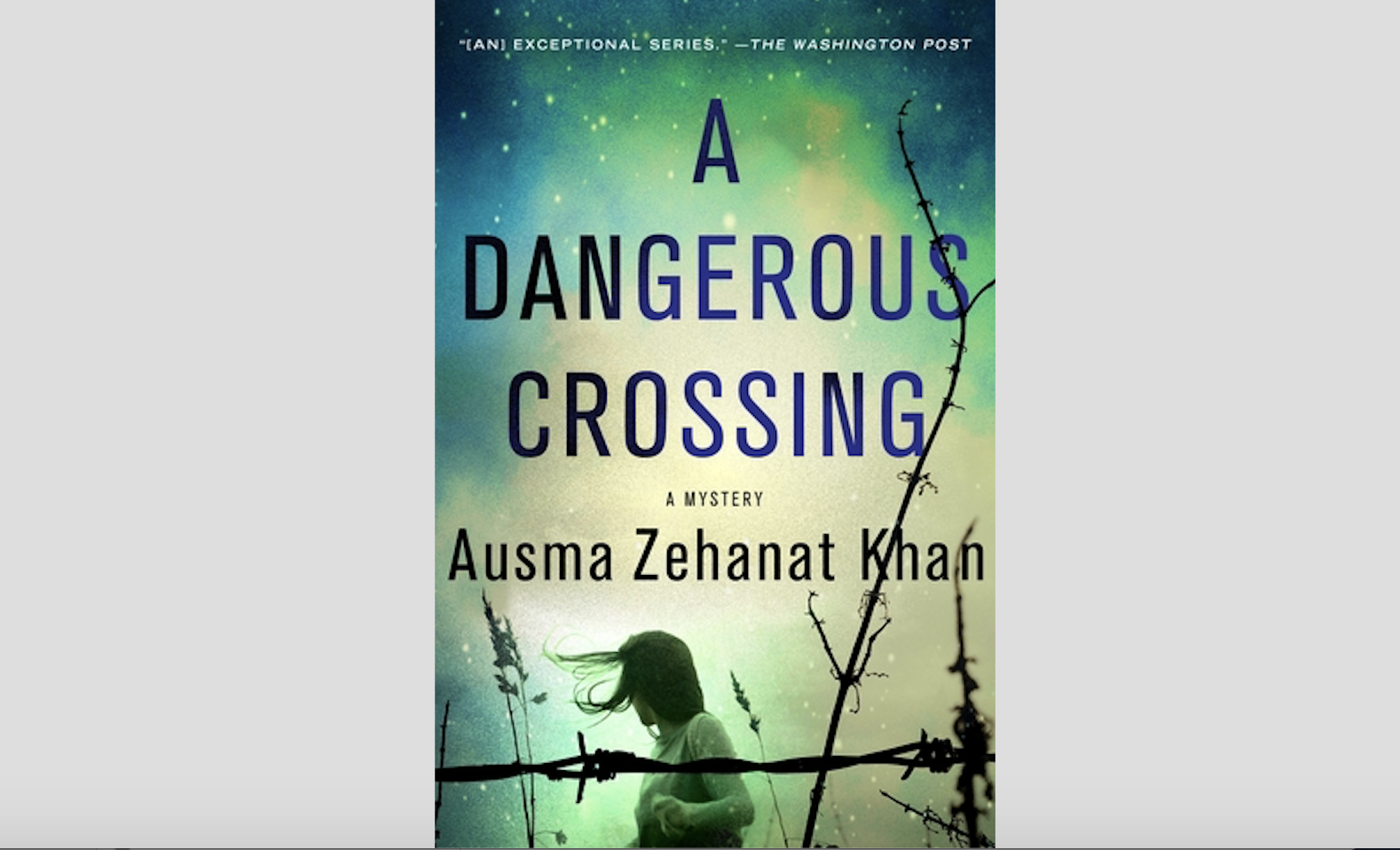If there is an immediately identifiable culprit in Ausma Zehanat Khan’s latest novel, A Dangerous Crossing, it’s the border.
Inspector Esa Khattak, Khan’s protagonist and detective, sees the suspect identified on slogans spray painted on a concrete barrier outside a refugee camp in Chios, Greece: “no borders, no borders, no borders, the prayer of the stateless.” The invisible line along the Aegean Sea that separates Turkey from Greece, and lures Syrian refugees into smugglers’ boats by night, is also what sets the plot of A Dangerous Crossing in motion: Audrey Clare, a Canadian woman operating an NGO on Lesvos, has gone missing, leaving behind two bodies killed with her gun: A French Interpol agent and a young Syrian man named Sami.
Khattak and his partner, Sergeant Rachel Getty, are dispatched by the prime minister (unnamed in this book, but unmistakeably modelled after Justin Trudeau) to solve the mystery and find Audrey before word of her disappearance gets out and compromises efforts to resettle Syrians in Canada. Thus begins the fifth book in Khan’s Community Policing series, a novel with a compelling premise and several intriguing moments but which nevertheless falters in its execution.
With A Dangerous Crossing, Khan follows a similar formula to her other Khattak-Getty novels by wedding the conventions of a mystery novel to a social justice-oriented critique of globalization and power. At bottom, mystery novels tend to combine the pleasures of plotting and suspense with social critique, in that through solving a crime, the hero-detective also often exposes corruption: the killer is the scion of a wealthy family; the murder is part of an extensive cover-up; the helpful bystander is in on the crime. In a way, then, Khan has simply shifted the scene of exposure from the ominous streets of the prototypical Western city the beaches of Greece, where the worldwide ripples of the war in Syria are thrown into sharp relief. Here, Rachel and Khattak encounter a range of characters, both refugees and those claiming to help them, and each of whom has something to hide.
Writing the story of the Syrian civil war as a mystery novel also requires rethinking the genre’s conventions. A detective story is about uncovering clues that are hidden in plain sight; on the islands of Lesvos and Chios, where children go missing without a trace, neo-Nazis start fires in refugee camps, and bodies wash up on the beach, the challenge is not so much in uncovering clues, but in finding a coherent thread amongst myriad tales of suffering.
This is the first book of Khan’s to represent a crisis that is unfolding in the present moment. Two books in the series take on the aftermath of the Bosnian War (The Unquiet Dead, 2015 and A Death in Sarajevo, 2017), while The Language of Secrets (2016) fictionalizes the Toronto 18 case of 2006 and Among the Ruins (2017) is about the death of a filmmaker in Iran. While the awful summer of 2015, when the infamous picture of Alan Kurdi’s drowned body galvanized resettlement efforts in Canada, is now nearly three years in the past, the war in Syria is far from over, as the recent destruction in Damascus and Ghouta have shown. The immediacy of the violence in Syria, and the 14 million people who have been displaced because of it, makes Khan’s book feel very timely.
While Khan’s blending of social critique and mystery plotting makes for a relevant and absorbing premise, the novel ultimately suffers under the weight of too many extraneous subplots and characters. This, I think, might be a function of the serialized mystery novel’s need to attract first-time readers while rewarding series loyalists for their dedication. The first third of the novel takes place in Toronto, but the plot here moves at a snail’s pace. There are several scenes that feel like setup, such as one where Khattak retrieves letters written by his late father. But there is no payoff for these later in the novel, which made me wonder if Khan inserted them for the purposes of a series-wide character arc that isn’t entirely relevant to A Dangerous Crossing.
The romance subplots also felt completely unnecessary and implausible. There are several scenes wherein two characters stop what they are doing in the middle of an urgent task to have a protracted and cliché-filled conversation about their feelings, accompanied by public kissing and plenty of enthused hair-smelling. The novel’s descent into schmaltz in these moments felt unfair, both to the central suspense plot and to the characters themselves, each of whom are dedicated to their work and exhibit great empathy for the refugees they come across in their search.
The final third of A Dangerous Crossing moves much more quickly and is far more suspenseful than the book’s earlier chapters, as Khattak and Getty get closer to finding Audrey. That mystery is ultimately explained, but A Dangerous Crossing isn’t really about a singular story so much as it is about the multiple ways in which war breeds violence — how a regime clinging to power will perpetuate unspeakable horrors, and how others will seek to gain from the resulting suffering if given the opportunity.
Throughout the novel, Khan implicitly drives home the criminality of the border, or, more specifically, those who erect, police and profit from it: her characters with Canadian and European citizenship move easily from Toronto, to Greece, to Turkey and the Netherlands and back again, while those with Syrian papers experience mobility hand in hand with the possibility of death. In this way, the border becomes apt metaphor for something ghastly that is hidden in plain sight.
A Dangerous Crossing by Ausma Zehanat is published by Minotaur books, $33.99




